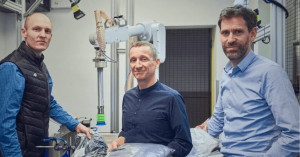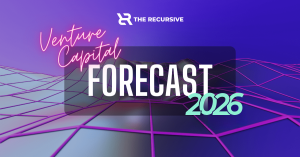European startups are continuously eyeing the United States for scale, capital, and partnerships, but too many still struggle with the first mile: getting a foothold on the ground. A new community initiative, the European Startup Embassy (ESE), is trying to close that gap with a physical base in San Francisco and a network designed around the realities of entering the U.S. market from Central and Eastern Europe (CEE).
A Bay Area landing pad, built by European founders and funds
Announced today (October 1, 2025), ESE has opened its first facility in San Francisco as both a coworking space and a community hub for founders and investors. The project was initiated by Czech and Slovak startups and funds — including Apify, Boost.space, Valka.AI, Keboola, and Rockaway Ventures — with additional backers from across CEE and Europe.
“The United States is a key market for European startups, offering a single and vast space for fast scaling, access to capital, and strategic partnerships,” the organizers said in their announcement. The ambition is two-way: connect European founders and investors with Silicon Valley, while giving American funds and companies a clearer path into Europe.
ESE’s leadership frames the model as a practical response to common blockers: fundraising without a U.S. presence, enterprise sales requiring local entities, and the time/cost of building networks from scratch.
“During our fundraising, we approached over 1,300 investors worldwide and determined that obtaining American investment without an established company and branch in the US is practically impossible. Very similar rules apply in enterprise sales,” says one of the founding partners, Tadeáš Marek of Boost.space.
“For any significant growth and expansion into Western markets, a physical presence in the United States is an absolute necessity.”
“We will offer startups from the Central and Eastern European region a stable base directly in the heart of the Bay Area in San Francisco, from where they can work, meet with mentors, gain contacts, and build strategic partnerships that will accelerate their growth,” commented Vladimíra Činčurová, ESE’s CEO.
She added that the project builds on an existing but fragmented CEE diaspora in the Bay Area, with local partners already active from the Czech Republic, Slovakia, Romania, Ukraine, and Hungary, and Poland and others expected to follow. “Each country will thus have its representation. Together, we want to establish partnerships with large American funds and companies to make access to opportunities faster and easier,” said Činčurová.
What’s on offer: desks, meetups, and a community foundation
The first ESE house in San Francisco is already operating as both coworking and community center. Startups can use desks, attend meetups, and connect with mentors and investors familiar with Silicon Valley.
An online platform will follow to help members track opportunities, set meetings, and share experience across locations. Community programming is led by Luca Stirbat, who has accelerator experience in Romania and Poland. Činčurová, who brings over seven years of experience in scaling startups across both the commercial and nonprofit sectors, plans to relocate to Silicon Valley to represent the project on-site.
Founding participants span technology companies (Keboola, Apify, Valka.AI, Boost.space, Navigara, ReactorX, Oddin.gg), venture funds (Rockaway Ventures, United Founders, Almaz Capital, Underline Ventures, SID Venture Partners, Lead Ventures, Picus Capital), as well as legal, accelerator, and advisory partners (Sparring, Future Unicorns, Moonshot, Telegraph Hill Advisors).
Beyond financing, partners will mentor and advise on fundraising, U.S. setup, expansion, and team building, with the project remaining open to new backers.
Why founders are signing on
Several early members say the value is practical: a dependable base for teams cycling through San Francisco, plus structured access to a local network.
“Over the past year, our team has been spending a lot of time in San Francisco, and we’ve really missed having an accessible base where we could work comfortably and host the many events we’re planning,” said Jan Čurn, co-founder and CEO of Apify.
For Čurn, the goal in San Francisco is visibility and partnerships rather than direct sales.
“San Francisco is the epicenter of the tech world and the AI revolution – there’s an enormous concentration of technology companies here, and even those that aren’t based here visit regularly. Although more than half of our revenue comes from the US, the main goal of our San Francisco mission isn’t sales – it’s about raising awareness of Apify in the developer and AI community and building technology partnerships and integrations.
“Even today, personal connections are what take you the farthest and open doors you wouldn’t even know existed if you were operating from afar.”
He notes the Bay Area won’t fit every business equally. “That depends on what a particular startup does – San Francisco isn’t the right place for every company. If you sell software to banks, for example, it probably makes more sense to spend time in New York or London. But if you’re working on AI, developer tools, or both (like we are at Apify), San Francisco is where things are happening.
And as it happens, this is also where the world’s most well-funded investors are, he concludes.
“The European Startup Embassy (ESE) is a project with real potential to help companies enter the US market, which is one of the key markets for global success. The quality of the ESE team is proven by the fact that they secured a location where you’ll find most of the major US VC funds literally just around the corner.”
A two-way bridge
ESE’s backers position the hub as a practical bridge between a fragmented European market and the scale expectations of U.S. capital, reducing first-meeting friction while giving American investors a clearer path into CEE opportunities.
With the San Francisco base active and an online layer on the way, the Embassy’s next phase will depend on how quickly its community-driven model turns desks and meetups into cross-Atlantic relationships that compound.







